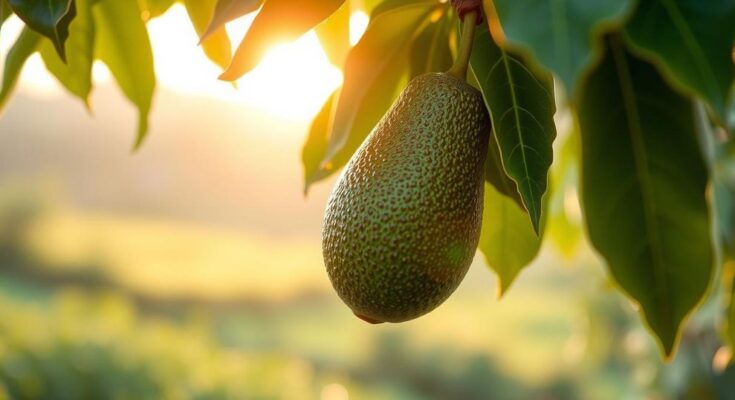The avocado season in Kenya began on February 14, with climate change disrupting peak harvest timings. Despite a one-month delay for the Hass variety, quality remains high, and demand is strong. Growers have expanded acreage as they adapt to challenges, using innovative technologies to ensure quality and maintain market resilience.
The avocado season in Kenya commenced on February 14 with the introduction of green-skinned varieties, followed by the Hass variety. This year, the avocado industry is facing challenges due to adverse climate conditions that are disrupting the traditional timing of peak harvests. Despite these challenges, Hassan Nandwa, Managing Director of Fawakih, remains optimistic about the season’s success.
Nandwa acknowledges that the effects of climate change have altered avocado flowering times, resulting in a production delay of approximately one month, particularly for the Hass variety. Traditionally, peak volumes were reached in March; however, a shift is anticipated this year, with peak production expected in April. He asserts that the overall quality of Kenyan avocados continues to improve annually, ensuring they meet market standards.
Despite global trade disruptions, Nandwa reports strong demand for avocados, emphasizing that Kenyan products are upheld by consistent quality. He notes, “Global trade is also experiencing disruptions, but we see that demand for avocados remains solid. Kenyan origin remains resilient thanks to consistent quality. We can rely on our markets in Europe, the Middle East, and the Far East.”
The confidence of growers is reflected in the increase in avocado cultivation, which has expanded from 30,000 to 34,000 hectares this season. Nandwa attributes this growth partly to the ongoing crisis in the Red Sea, which has prompted Kenyan exporters to adopt advanced technologies to enhance fruit quality. He states, “We are doing our best to adopt the latest technologies to delay fruit ripening, for example by using active CA containers, ethylene absorbers, etc. and this challenge has really opened the eyes of Kenyan growers and exporters, leading to better quality.”
In conclusion, while climate disruption has delayed the peak harvest timing for avocados in Kenya, producers remain committed to adapting and maintaining high-quality standards. With demand for Kenyan avocados holding steady and acreage on the rise, the outlook for this season is cautiously optimistic. Furthermore, the implementation of advanced technology in harvesting practices reflects a proactive approach to overcoming current challenges within the industry.
Original Source: www.freshplaza.com




